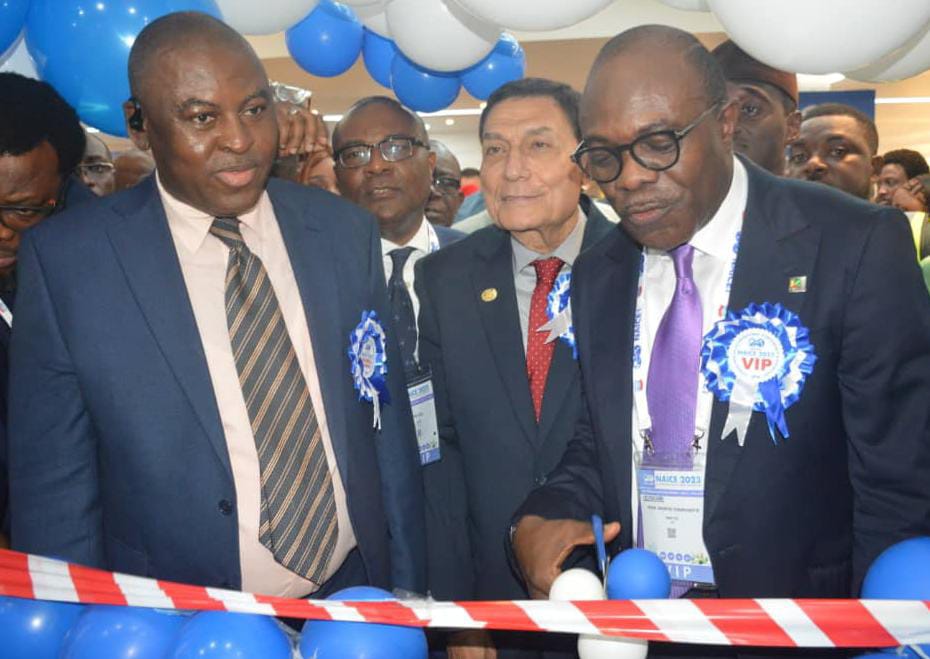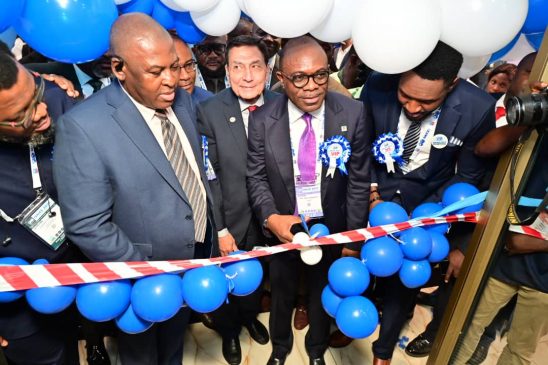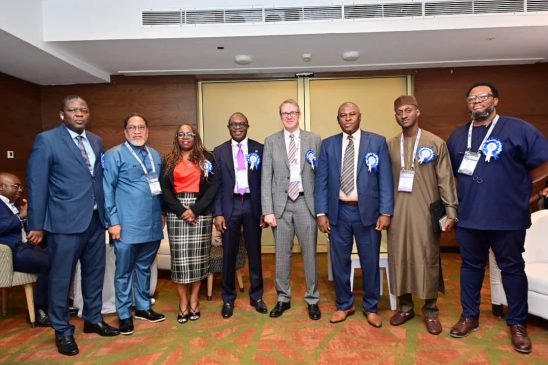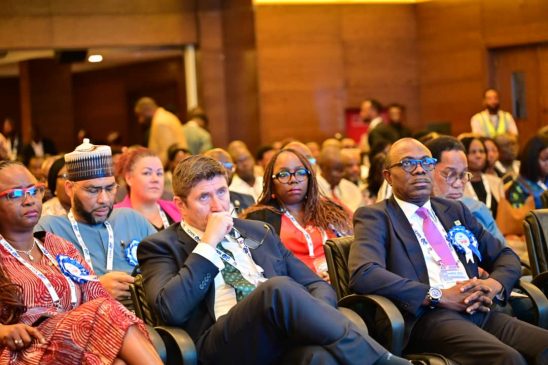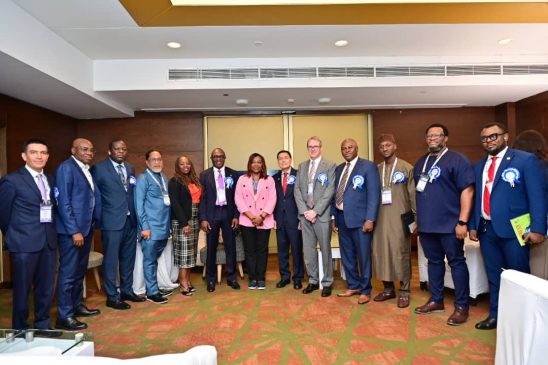Gas transportation projects will achieve affordable, cleaner energy for Nigerians- NNPCL boss
By Yusuf Yunus
Malam Mele Kyari, Group Chief Executive Officer, Nigerian National Petroleum Company Ltd., says the company will aggressively pursue its gas development and gas transportation projects.
Kyari said this on Monday in Lagos, while delivering a keynote address at the ongoing Society of Petroleum Engineers’ Annual International Conference and Exhibition.
The Business Intelligence (TBI Africa) reports that the 2023 conference is with the theme, “Balancing Energy Accessibility, Affordability, and Sustainability: Strategic Options for Africa”.
Kyari, represented by the Executive Vice President, Upstream, NNPCL, Mr Adokiye Tombomieye, said that the project would increase energy accessibility, affordability and sustainability for Nigerians.
According to him, Nigeria has about 209.5 trillion cubic feet of natural gas reserves with a potential upside of up to 600 trillion cubic feet.
The chief executive officer noted that this was an enormous resource that would drive cleaner and affordable energy vision.
kyari said while there are alternative energy sources such as solar and wind, unlike gas, are faced with technology limitations, they are still not affordable and cannot meet the high energy demands of industries, cities and remote environments.
He appreciated the SPE on the consistency in leading pivotal industry professional assemblage.
He added that African countries still grapple with strategies of balancing energy availability with meeting the United Nations Sustainable Development Goals No 7 (Affordable and Clean Energy) and No 13 (climate actions).
He said, “Energy accessibility means ensuring all citizens can access reliable, modern energy, irrespective of their location or socio-economic status.
“Energy affordability entails ensuring energy and its infrastructure are priced so they can be obtained without financial strain by Africans, while energy sustainability implies that our energy use does not harm the local environment or exhaust resources, affecting future generations.
“This is indeed a trilemma situation and the delicate balance between political will, technological innovation, effective market mechanisms, well-crafted policy interventions, and capacity building.
“It also demands a multi-stakeholder approach, one that involves government, the private sector, civil society, host community and the public at large.
“In the past few years, the Nigerian energy industry has witnessed strategic transformation which has given birth to a viable industry legislation, the PIA, and a long-term gas-centered energy transition plan.
“On the policy front, we have also seen the emergence of the incorporation of our national oil company from NNPC to NNPC Limited,” he said.
Kyari said that the PIA also provides for NNPC Ltd. to engage in the renewable energy business; and the Nigerian Climate Act for mainstreaming climate change actions to achieve low emissions, inclusive green growth, and sustainable economic development.
“Nigeria is not transitioning away from the hydrocarbons; however, we hope to see an increase in the footprint of alternative cleaner energy sources in the foreseeable future amid fossil fuel dominance. We use what we have to get to our desired destination.
“This is the reason that NNPC Limited has identified gas as a transition fuel and we are expanding our gas development and gas infrastructure across the country to increase energy accessibility.
“NNPC Limited plans to sustain and increase our aggressive gas development and gas transportation projects to achieve affordable and clean energy which is the United Nations Sustainable Development Goal (SDG), Goal No. 7, as our strategic energy plan towards finding a balance for the energy trilemma,” he added.
He urged all industry stakeholders and SPE Nigeria Council to ensure the provision of affordable, clean, and efficient energy options to all stakeholders, comprising over 200 million Nigerians, under a just and equitable transition.
This, Kyari noted, includes not only their efforts in harnessing the existing energy resources but also in innovative research, development, and adoption of new and emerging technologies in the energy sector.
“Our collective success will be defined by how we deliver affordable wide range of energy sources sustainably. All of these cannot be achieved if we do not have security of our operations.
“We will continue to further deepen collaboration amongst all the relevant stakeholders; government security agencies, host communities and others to enhance our energy security.
“This will require provision of adequate and timely investments to build resilient energy systems capable of delivering energy to support socio-economic development in a sustainable manner, ” he said.
Mr Farouk Ahmed, Chief Executive Officer, Nigerian Midstream and Downstream Petroleum Regulatory Authority (NMDPRA), said that Africa has abundant natural gas reserves, estimated at 620 Tcf and is becoming the dominant energy source, according to the Gas Exporting Countries Forum (GECF).
Ahmed was represented by Dr Mustapha Lamode, Executive Director, Health, Safety, Environment and Community of NMDPRA said that Nigeria’s proven gas reserves is also currently estimated to be about 206 TCF.
According to him, this has the potential to unlock economic development and GDP growth for the country.
“Recent gas discoveries in Senegal and Mauritania show that West Africa is primed to be a gas region.
“Natural gas has been globally recognised as our transition fuel as it clearly offers a strategic competitive advantage to powering our continent sustainably through the creation of energy access for all in the short-to-medium term.
“The Federal Government has declared year 2020 as the year of gas and the years 2021 to 2030 as the decade of gas.
“These pronouncements heralded the implementation of several midstream gas investment initiatives such as the Nigerian Gas Expansion Programme and The Nigerian Gas Transportation Network Code,” he said.
He said that the Petroleum Industry Act (PIA) 2021 enunciates the importance of the midstream sector of the oil and gas industry as a critical tool and strategic driver for actualising the nation’s energy sustainability through gas development and utilisation, creation of jobs and diversification of the economy.
Ahmed said that NMDPRA is galvanizing this sector by addressing the trilemma of energy accessibility, affordability and sustainability by unlocking the full potential of natural gas which is the cleanest fossil fuel so far.
He said that this has multiplier effects on all sectors of the economy, from agriculture, manufacturing, power and petrochemicals.
“For us as regulators, this discussion on the theme of the conference could not have come at a better time than this. We would expect contributions, criticism of existing strategies and new solutions to energy balancing, sustainability and affordability.
“So, let us continue to collaborate in order to create a sustainable energy future for our industry, “Komolafe said.
He said that the Nigeria-Morocco Gas Pipeline and Tran-Saharan Gas Pipeline, key midstream gas projects, when completed would place Nigeria as a major gas exporter to West Africa and Europe.
According to him, it would build stronger ties between Nigeria, West Africa and Europe.



